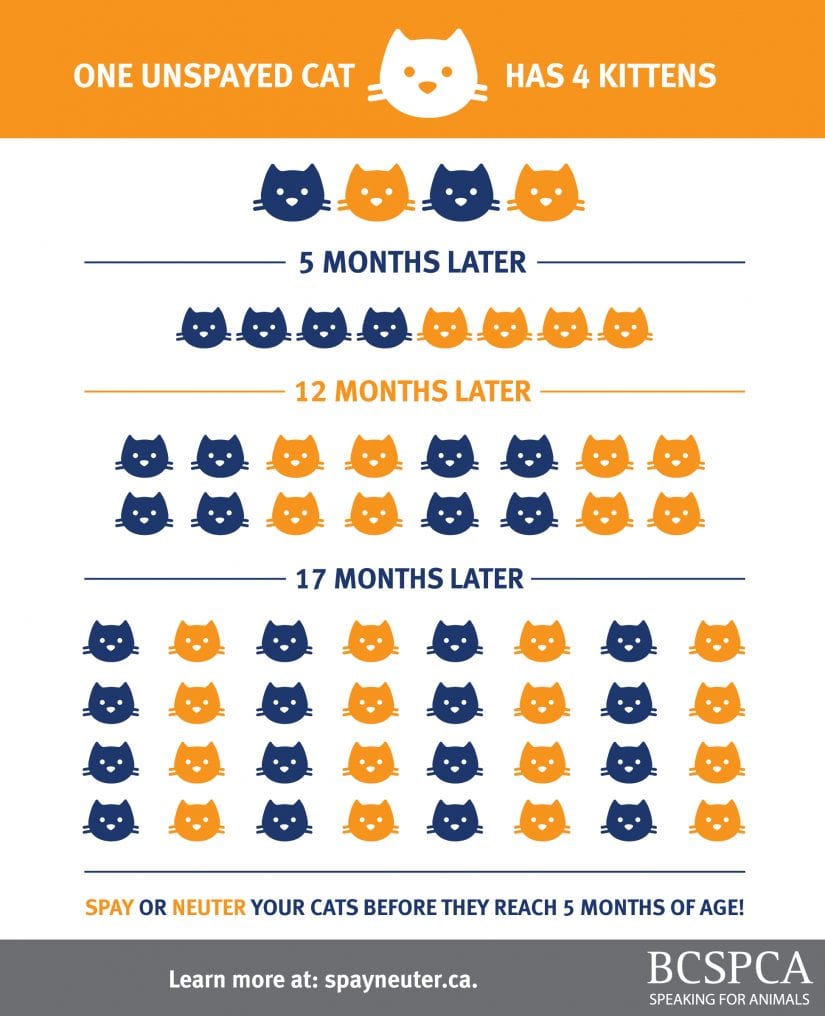Every day, thousands of kittens are born to family pets, stray cats living on the streets and community (feral) cats. These kittens can get pregnant as early as five months old, producing more kittens and continuing the cycle. The result? Too many cats and not enough homes for all of them.
Steps you can take:
- Talk to your family, friends and neighbours about the importance and benefits of spaying and neutering.
- Make sure your animal has a microchip as permanent identification and your registration information is up-to-date.
- Send a letter to your mayor and council to request spay/neuter funds for your area.
- Organize a team of volunteers to distribute brochures around your community.
- Volunteer to help with transporting a cat who needs spay/neuter surgery.
- Help build a community cat shelter.
- Donate to cover the cost of a cat spay or neuter.
- Tell family, friends and neighbours about the risks of allowing cats outdoors.
How the BC SPCA is addressing the issue and promoting spay/neuter:
- This program provides support for you to have your pet spayed or neutered (fixed). Visit our Community Spay/Neuter page to see what funding may be available in your area.
- Operating veterinary clinics: These clinics prioritize spaying and neutering pets. They provide either no-charge or discounted spay/neuter services for feral cats and discounted prices for pets of financially disadvantaged and First Nations guardians.
- Helping municipalities take action: Some B.C. municipalities have established spay/neuter funds for low-income residents. These funds have reduced shelter intake in communities where they’ve been implemented.
- Offering youth and public education: Messaging on the importance of spaying and neutering is worked into our humane education programs for youth in schools, and to the public through awareness programs.
Take action to help cats in your community
Your voice and actions matter. Watch the video below to learn how you can help prevent cats in B.C. from suffering:

